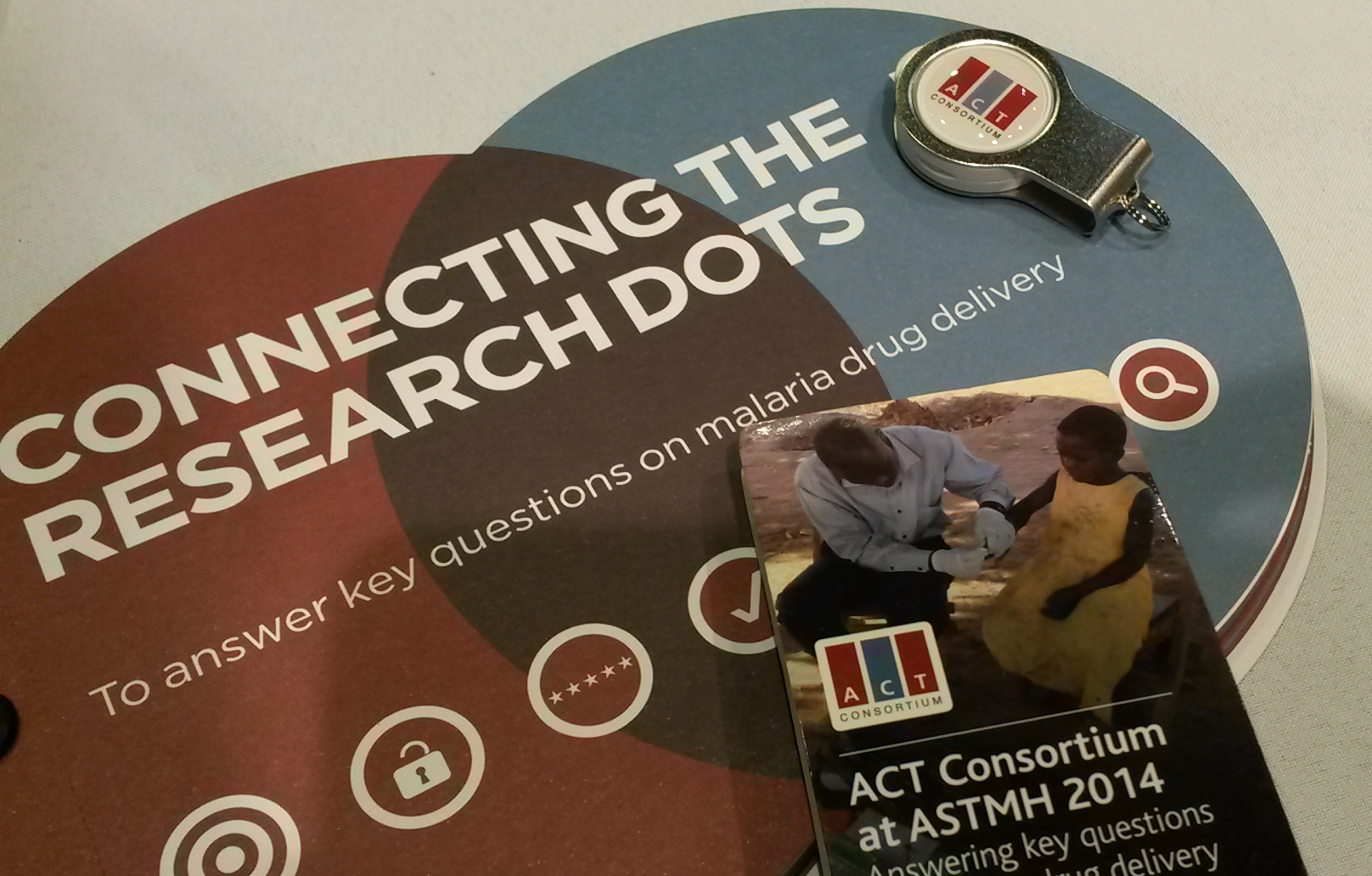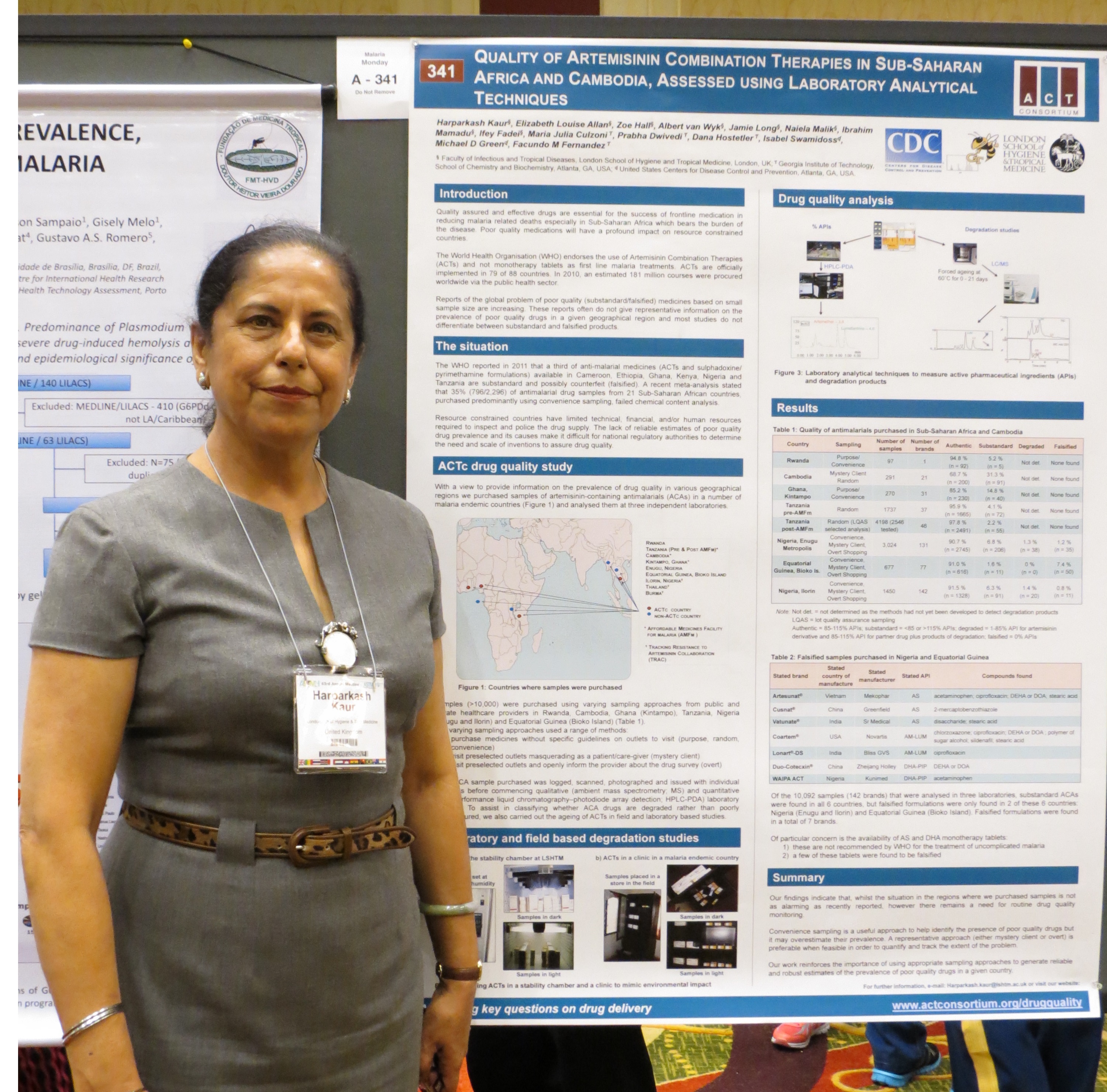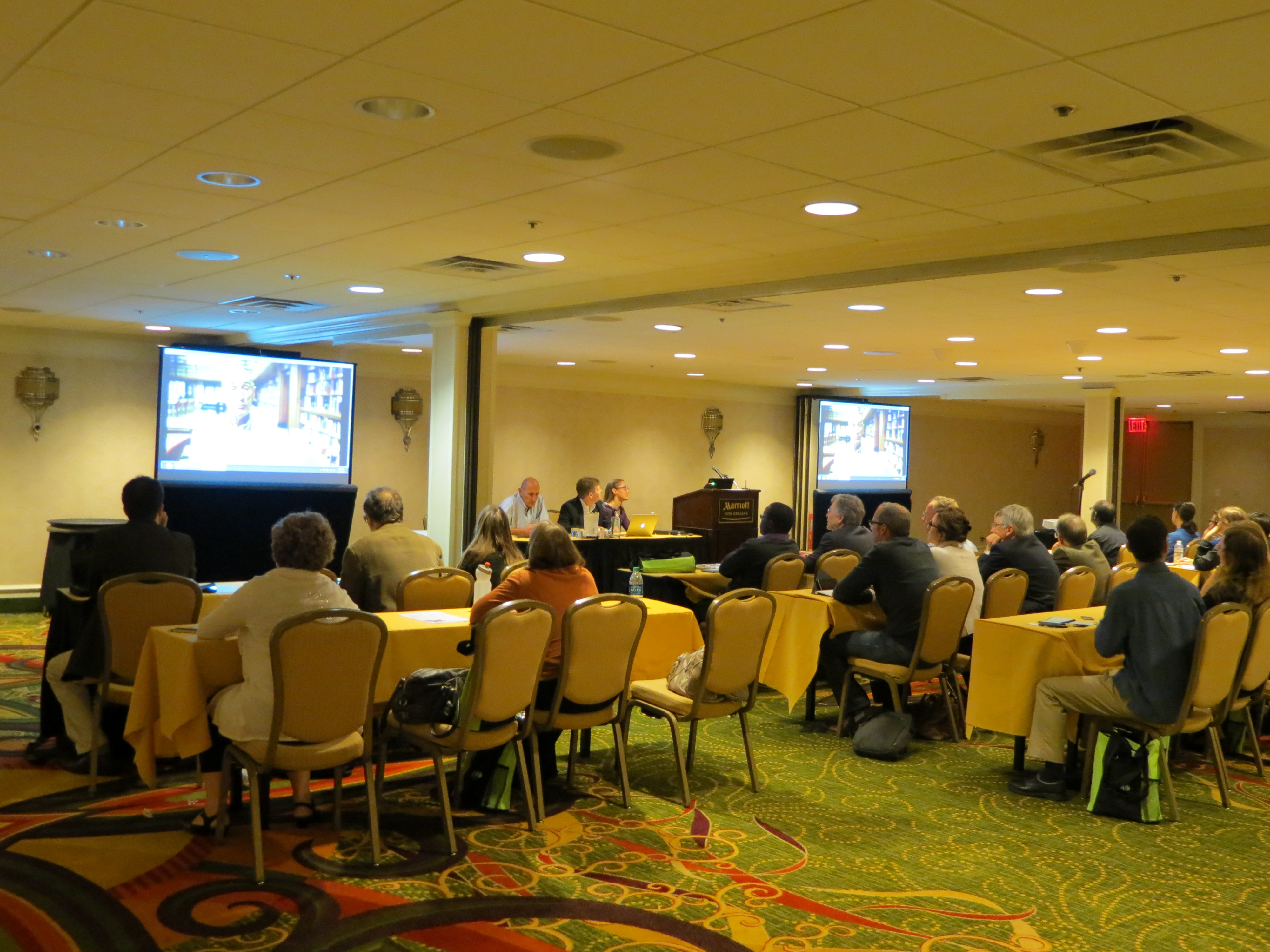ASTMH 2014: Malaria highlights
9 November 2014
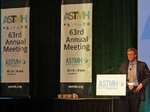
Bill Gates' announcement to increase malaria funding, strategic plans from the WHO to eliminate malaria and ACT Consortium research results were some of the malaria contributions seen at this year's meeting of the American Society of Tropical Medicine & Hygiene.
During the opening speech in New Orleans, Bill Gates addressed the Ebola crisis, but devoted the bulk of his time to another killer disease: malaria. The Bill & Melinda Gates Foundation will increase its malaria programme budget by 30 percent, to more than $200 million per year.
- Read the blog of Bill Gates "We can eradicate malaria - within a generation"
Dr Anja Terlouw presented reassuring preliminary results from the ACTia trial in Malawi. Early analysis of study data do not show that repeated ACT treatment is unsafe for young children.
- Learn more about the ACTia trial
Katia Bruxvoort's research showed that in both the public and retail sectors in Tanzania patient adherence to ACT treatment was sub-optimal.
- Download Katia Bruxvoort's poster: "Are public or retail sector patients more likely to complete treatment?"
Dr Harparkash Kaur presented reassuring results from a large-scale drug quality analysis of over 10,000 ACT samples across several countries in Africa.
- Learn more about the drug quality study*
Dr Pedro L. Alonso, the new Director of the Global Malaria Programme, introduced the context and need for a new Global Technical Strategy (GTS) for malaria. Between 2016 and 2030, the strategy aims to ensure universal access to malaria prevention diagnosis and treatment, accelerate efforts towards elimination and attainment of malaria free status, as well as to transform malaria surveillance into a core intervention.
Dr Alonso also highlighted that country ownership and the participation of communities are essential to reach the elimination targets (35 countries by 2030).
- Watch Pedro Alonso's presentation on the new GTS for malaria
- Learn more about the WHO Global Technical Strategy (GTS) for malaria
David Brandling-Bennett, Senior Malaria Advisor for the Bill & Melinda Gates Foundation and a member of the ACT Consortium Expert Oversight Committee, encouraged the malaria community to provide input into Roll Back Malaria's second Global Malaria Action Plan (GMAP2).
To date, more than 1100 stakeholders have been consulted directly, and more than 100 completed the online survey.
- Watch David Brandling-Bennett's presentation on GMAP2
- Learn how to share your success stories and challenges in the GMAP2 consultation process
ACT Consortium statistician Baptiste Leurent presented research on whether the use of exit interviews at health facilities can influence how health workers adhere to guidelines.
- Download the poster "Analysis of the Hawthorne effect in a study of adherence to malaria treatment guidelines in Tanzania"
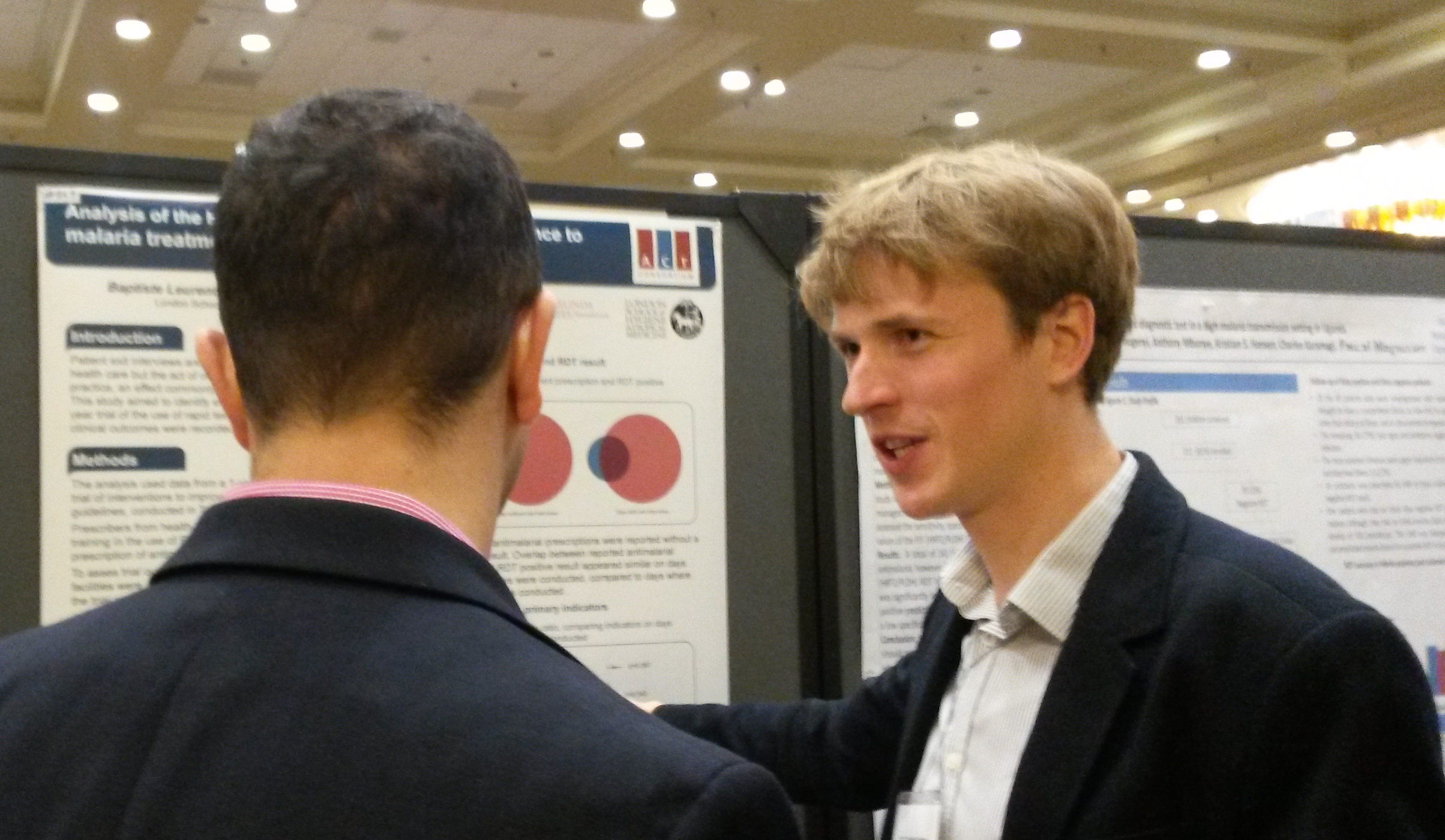
Cheryl Pace presented a novel data collection tool to facilitate the capture of harms data. She encouraged the research community to use the Safety Adverse Event forms to assess general, non malaria-specific safety issues.
The presentation highlighted the overlap between the adverse events reported by both field workers and clinicians, and the consequent need to train both groups in adverse event monitoring.
- Download the presentation "Facilitating harms data capture by non-clinicians utilizing a novel data collection tool"
Débora Miranda presented a communications toolkit to maximise research impact, based on experience from the ACT Consortium.
- Download the poster "Share your findings: a guide for scientists and media professionals to generate public interest in research"
Dr Hugh Reyburn, Dr Heidi Hopkins and Dr John Crump led a symposium on Non-Malaria Febrile Illness (NFMI). An early version of a novel NMFI web mapping tool was presented and the research community is welcome to provide feedback.
Baptiste Leurent presented the impact of malaria rapid diagnostic tests (RDTs) on care of febrile patients, based on results from various ACT Consortium studies.
- Learn more about the ACT Consortium research to improve the targeting of artemisinin-based combination therapies*
Prof David Schellenberg, the director of the ACT Consortium led a Monitoring & Evaluation symposium. Dr Anja Terlouw presented a rolling malaria indicator survey developed in Malawi which tracks malaria hotspots at a sub-district level.
Symposium speakers highlighted the need to target malaria control efforts at a local level, improve the management of surveillance systems and maintain capacity building to help those systems.
- Learn more about the context of the rolling malaria indicator survey*
- Download poster "Using geostatistical methods to analyse spatio-temporal changes in childhood malaria following scale-up of control efforts in Chikwawa District, Malawi" (Emanuele Giorgi):
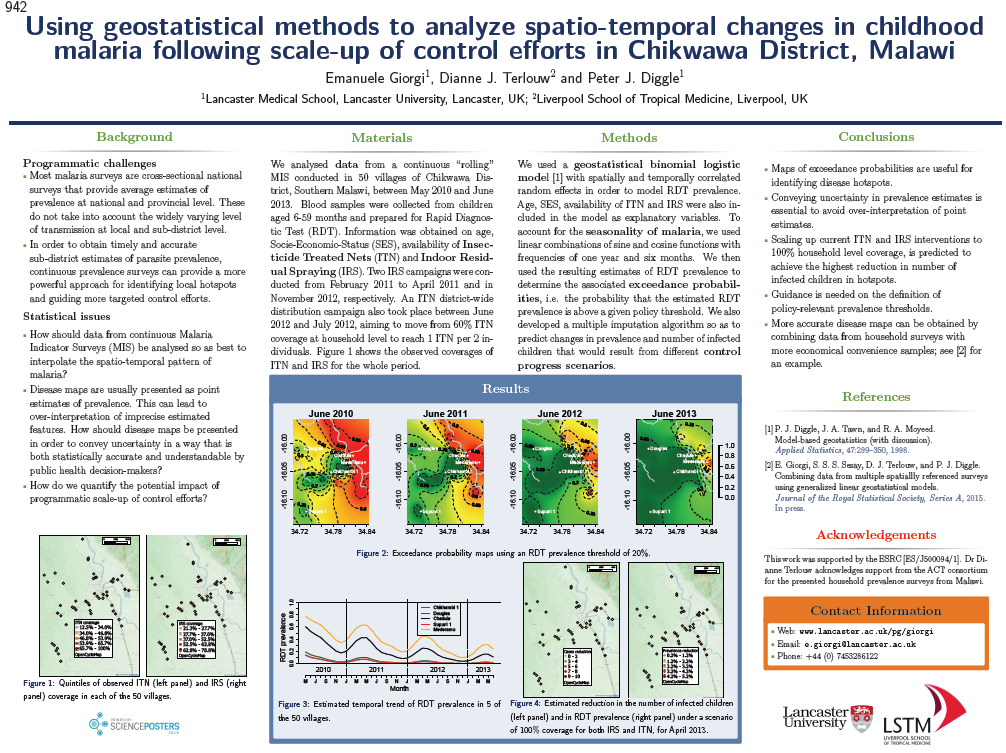
- Emanuele Giorgi awarded prize at ASTMH conference
*Presentations will be available soon
Further information
- Related news: ACT Consortium to present research results at ASTMH 2014 (schedule)
